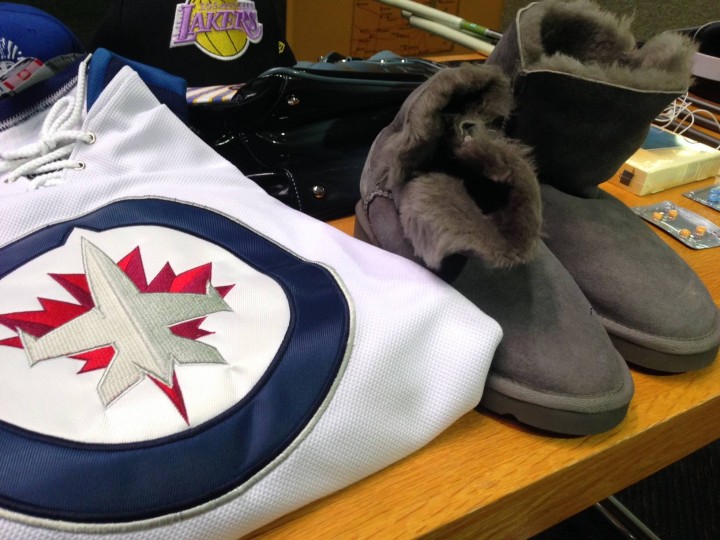Your favourite perfume at a fraction of the price and those name-brand shoes for a steal of a deal you found online? Probably fake.

The counterfeit business is booming, with more than half-a-trillion dollars in fake goods being traded every year, according to a new report by the Organisation for Economic Co-operation and Development (OECD) and the EU’s Intellectual Property Office.
READ MORE: Buyer beware: Gift cards leaving customers short-changed
Italian, U.S. and French brands are among the most in-demand goods that are copied and sold off as real, the report states. China is the largest producer of counterfeit goods.
“The concept of fake goods has been around for centuries,” Evan Kelly, senior communications advisor with the Better Business Bureau (BBB), serving Mainland British Columbia. “We’re not just seeing fake products, we’re seeing complete fake iTunes stores, Apple stores that have been set up in China.”
“There doesn’t seem to be any limits.”
Everyday sports brands such as Nike are just as likely to be knocked off as high-end brands Gucci or Dior. And while it’s bound to leave consumers frustrated and feeling ripped off, making matters worse is that proceeds often go to organized crime.
Footwear is the most often copied item, the report says. What’s really worrisome is some knockoff items can be harmful: toys that could endanger a children or medical devices that don’t work.
There are some red flags for consumers; here are some tips to get what you pay for.
If it sounds too good to be true…
Go to a store or official website if you want the real deal. It’s not just online where you run a risk; items from Craigslist of Kijiji could also be counterfeit.
“The best way to do it is to seek authorized retailers,” says Kelly.
Take a look at the payment system, and if the website is secure. If a website has https., it is secure. As well, there should be a lock icon on pages where you are putting in personal information such as credit card numbers.
“They should have a fairly scrutinized payment system,” says Kelly. “Or something like PayPal. You certainly want to be paying with a credit card online just in case something goes sideways, you’ll have more of a recourse if you need to prove something is fraudulent.”
“You might still be on the hook for it but it’s certainly easier if you have something of a paper trail.”
Be wary of being approached with can’t-be-missed offers; phishing emails from a known brand or business can look very legit.
WATCH: Better Business Bureau releases list of top 10 scams

Shop around, and see what market value is for an item.
When ordering online from an unofficial website or seller, you run the risk of losing your money and not much coming of it. However, there are federal and provincial agencies you can reach out to for help or to flag an unscrupulous vendor.
READ MORE: Third-party site leads to concert ticket nightmare
“The Canadian anti-fraud centre is the RCMP wing of fraud crime, in B.C. we have consumer protection B.C., there are counterparts in other provinces,” says Kelly.
“It really comes down to, if it’s too good to be true, if you think you’re getting something that you’re knowingly ordering from something that’s other than a legitimate website then you run the risk of getting something that you didn’t want.”
While you should do your research and read reviews online, take them with a grain of salt.
“It’s believed that upwards of 20 per cent or more of reviews online are fake. If it’s easy to set up that kind of a shop, an online portal where people can buy your fake stuff, it’s certainly easy to post fake reviews about it.”
Some websites — such as the BBB — offer verified reviews, so you can be sure it’s a “real person” leaving feedback.
The BBB handles more than 10,000 complaints each year about online shopping. You can read more tips about smart shopping online here.
- Several baby products have been recalled by Health Canada. Here’s the list
- ‘Super lice’ are becoming more resistant to chemical shampoos. What to use instead
- Is home ownership only for the rich now? 80% say yes in new poll
- Invasive strep: ‘Don’t wait’ to seek care, N.S. woman warns on long road to recovery




Comments